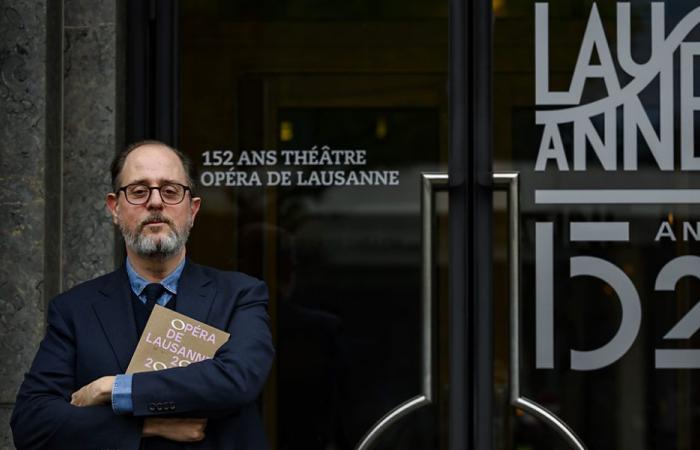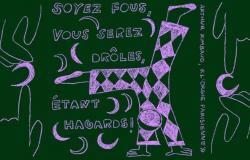It’s time for big premieres at the Lausanne Opera. Its new director Claude Cortese launches its inaugural season on Sunday with “Guillaume Tell” by Rossini, a work never before presented in the Vaudois house.
Contacted by Keystone-ATS a few hours before the dress rehearsal, Claude Cortese said he was “impatient” to show the Lausanne public this opera, “Rossini’s last and best”. A work whose opening is one of the hits of classical music, but whose rest of the score remains “fairly unknown.”
It must be said that Rossini’s opera, based on a French libretto and first presented in Paris in 1829, is “a big piece”, recognizes Claude Cortese. This is particularly true for its length which, after a few “cuts”, was reduced to 3h45 in Lausanne, including intermission.
Among its other difficulties, which also make it rich, the work requires numerous singers, in this case around ten soloists and around forty choristers. Rare are the operas to present so many choral passages over four acts, notes Claude Cortese.
Early roles
The new director, who succeeds the 20-year reign of Eric Vigié, is in any case delighted to show “Guillaume Tell”. The Marseillais even mentions that it is “obvious” to present, finally in Lausanne, the lyrical version of the life of the most legendary of Swiss heroes. It was also indisputable, according to him, to start its first season with a new production.
This too was entrusted to newcomers. The Italians Bruno Ravella and Francesco Lanzillotta, respectively director and musical director, had never before stopped at the Lausanne Opera, as had those responsible for the sets, lights, costumes and other choreography.
Novelty is also required for the soloists, around 80% of whom are in a “role take”, that is to say they embody their character for the first time. This particularly applies to the three main roles: the French baritone Jean-Sébastien Bou (Guillaume Tell), the Ukrainian soprano Olga Kulchynska (Mathilde) and the French tenor Julien Dran (Arnold).
According to Claude Cortese, all these new features aroused “excitement” during the creation of this production, then during rehearsals. “We are now looking forward to knowing the public’s reactions,” he notes.
Opera and cinema
The new director adds that tickets have “sold very well” and that Sunday’s premiere is sold out. However, there are still a few places left for the four other performances on October 8, 11, 13 and 15.
Claude Cortese also recalls that the presentation of “Guillaume Tell” coincides with the start of collaborations with other Lausanne institutions, the Marseillais having indicated upon taking office that he wanted to “create bridges”.
The first collaboration was organized with the Swiss Cinematheque, whose Capitole cinema is almost next door to the Lausanne Opera. Next Wednesday, the Cinémathèque will screen a recently digitized version of Emil Harder’s “Origins of the Confederation”, a 1924 Swiss film which traces the founding of the Confederation based on the myth of William Tell. This silent film is accompanied by piano.
This article was automatically published. Source: ats






